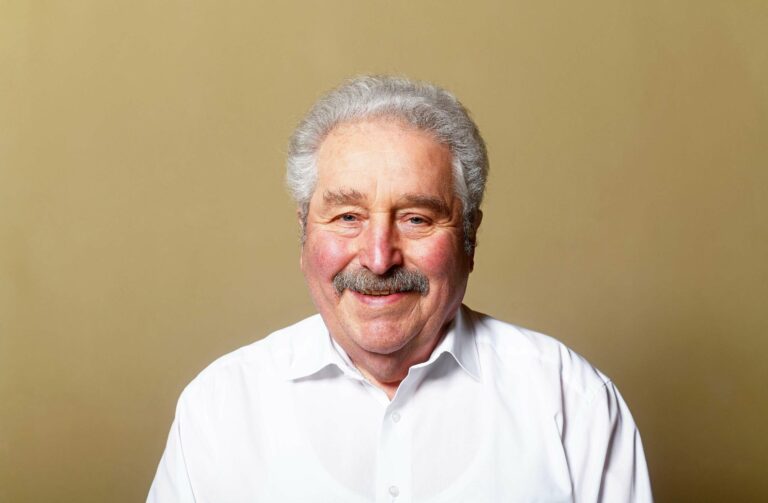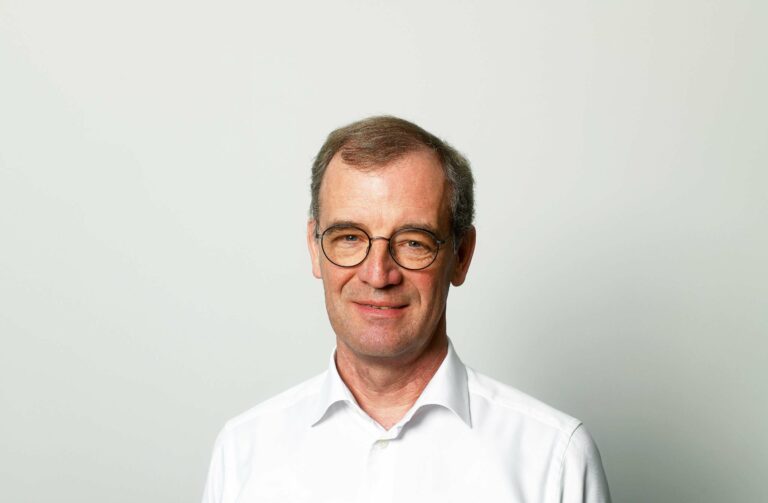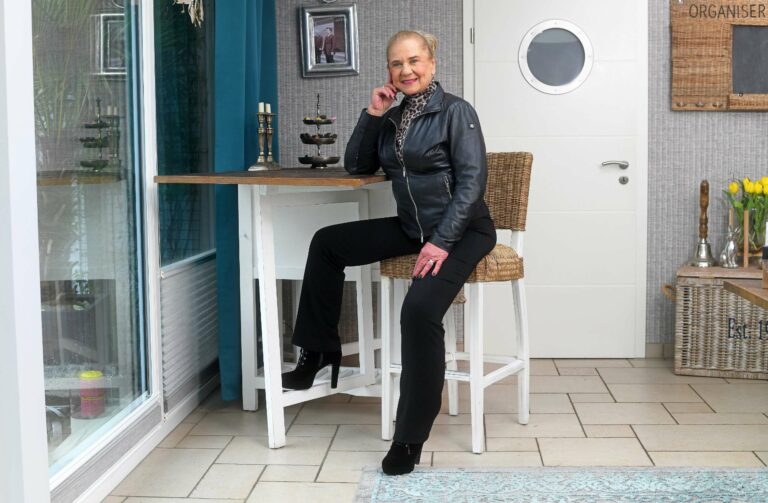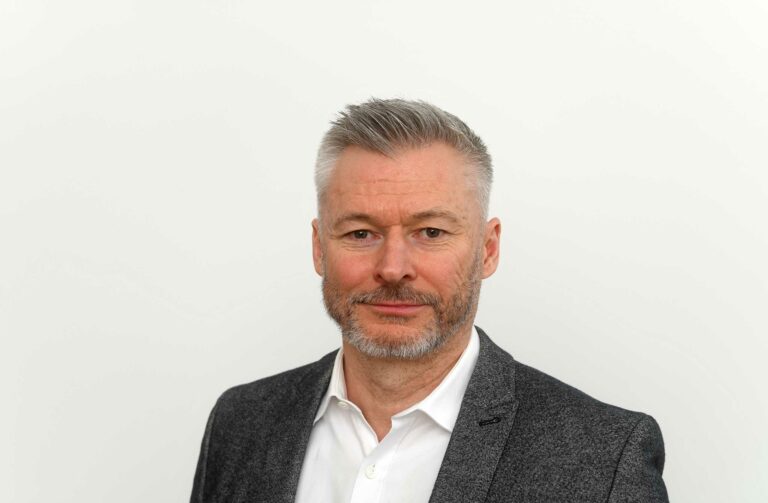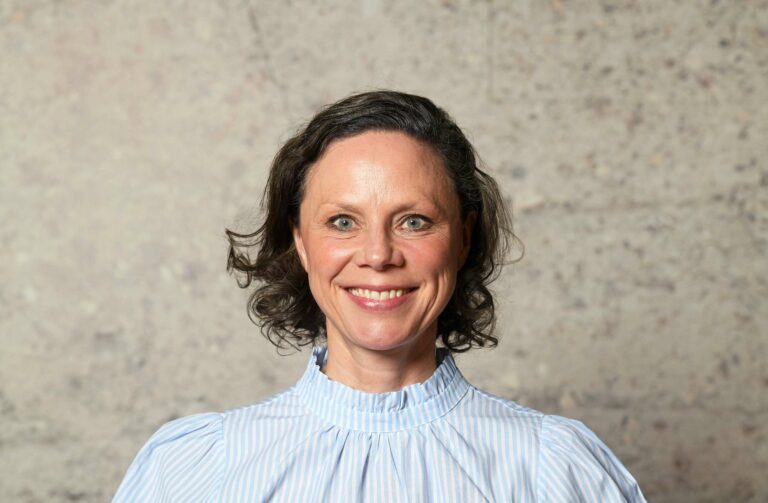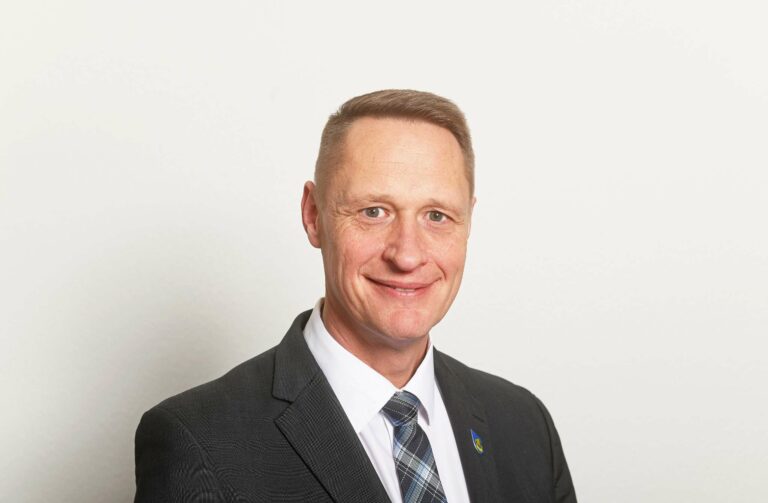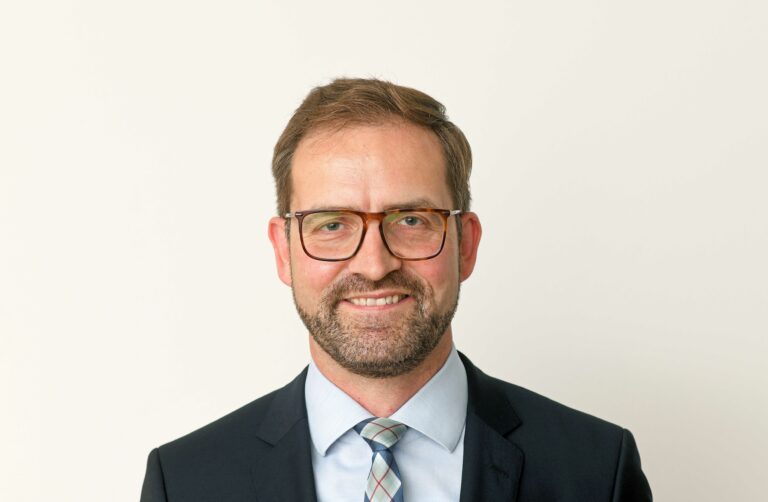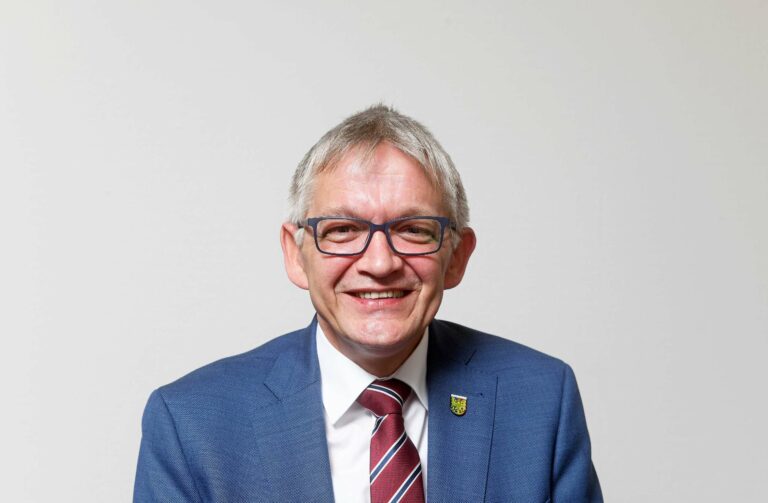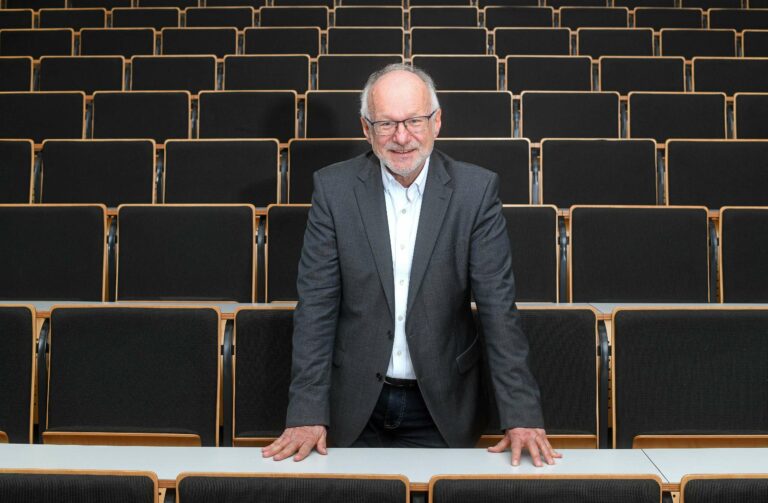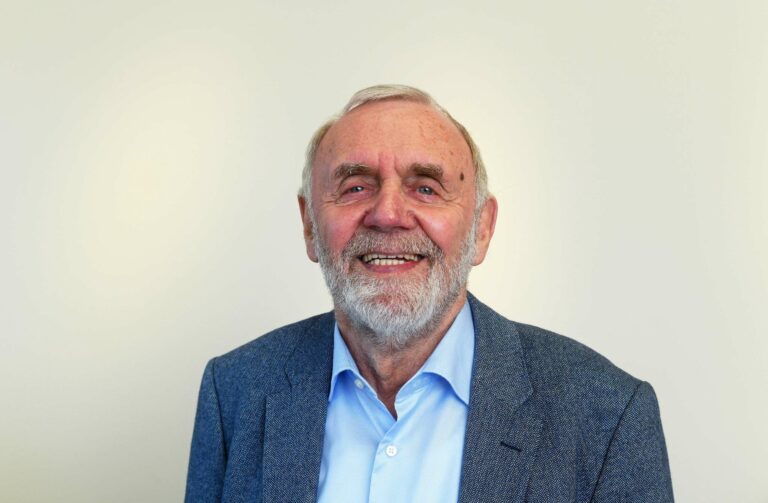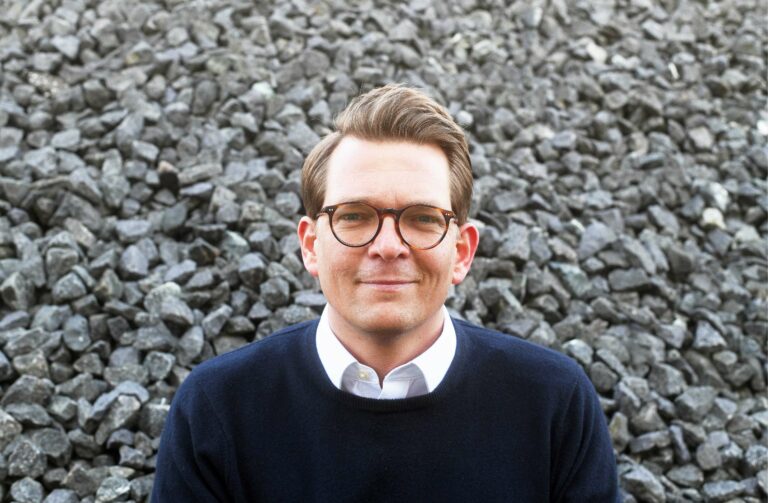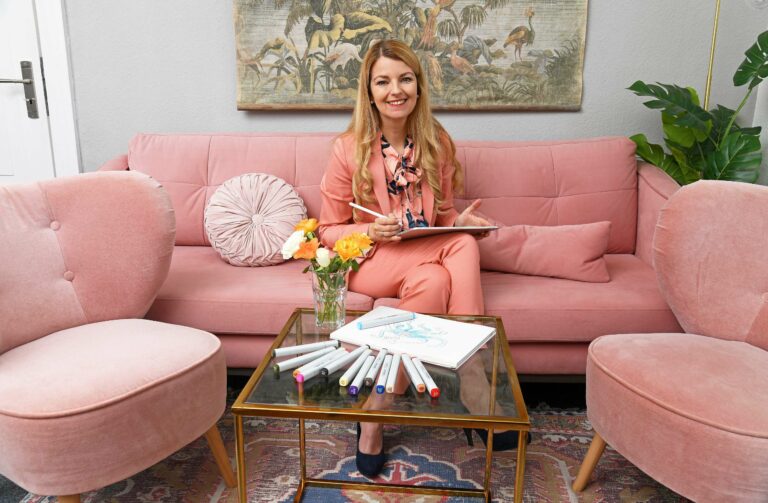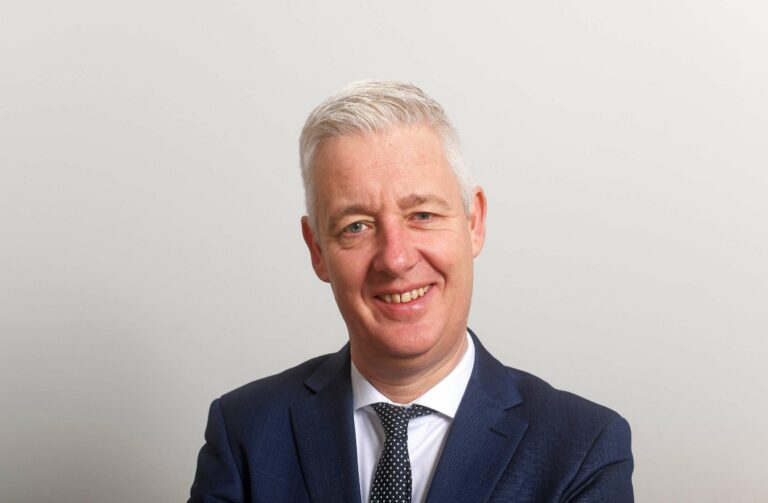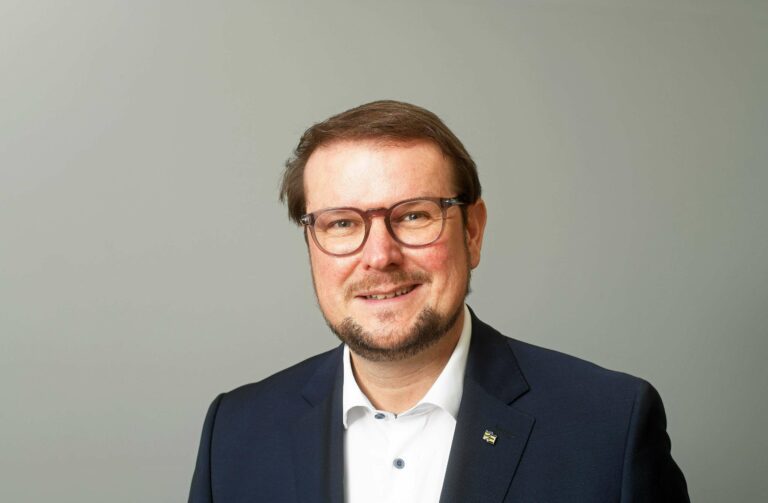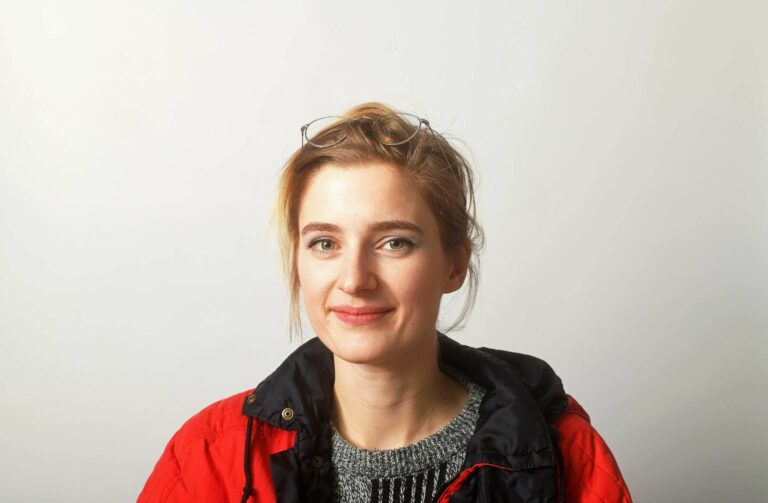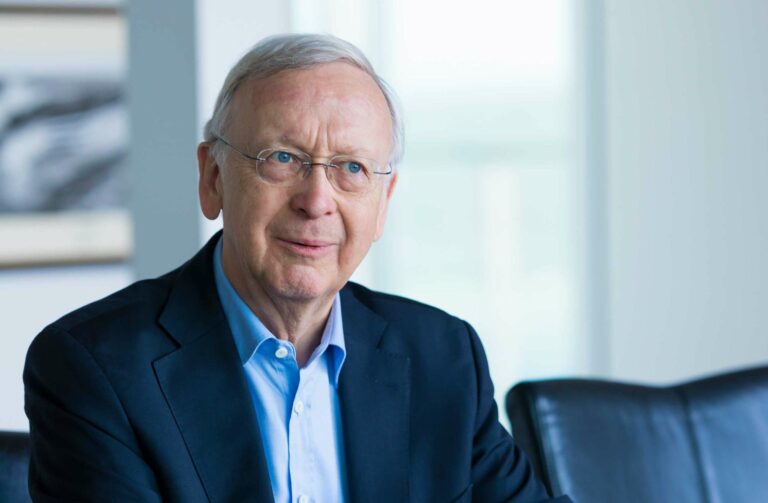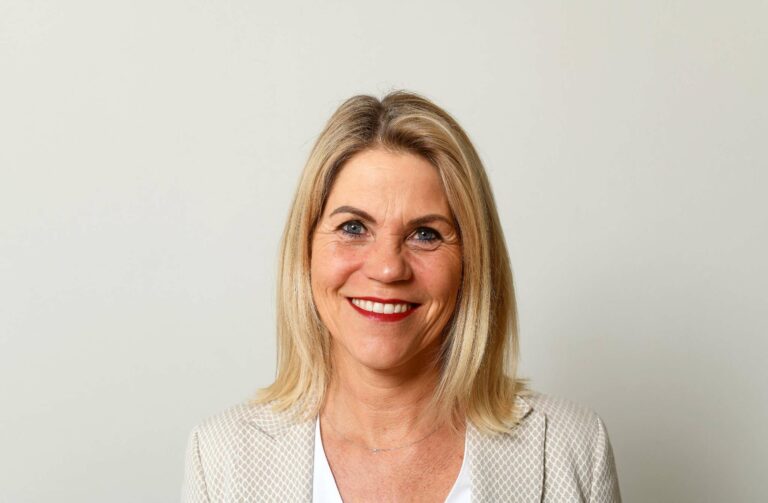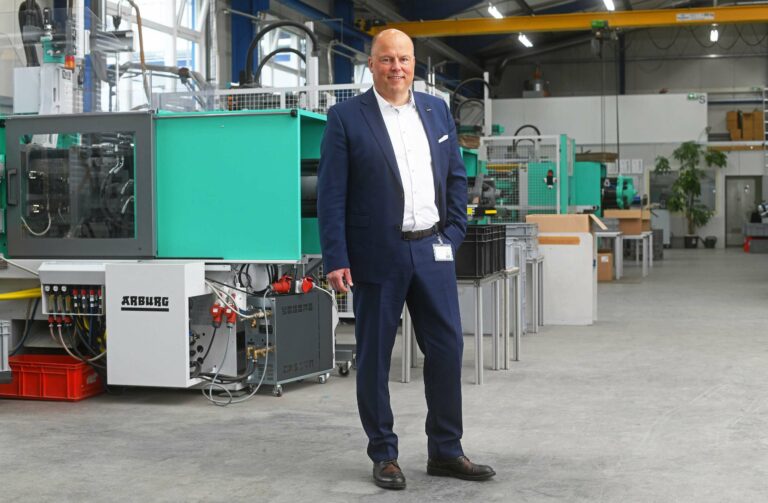"You have to find answers to altered framework conditions."
How will we shop tomorrow?
Retail and technology experts all over the country are addressing this question. What are the commonalities between the supermarkets of the future and those of today? Markus Buntz, CEO of the Bünting Group, which is headquartered in Leer, Germany, knows the answer.
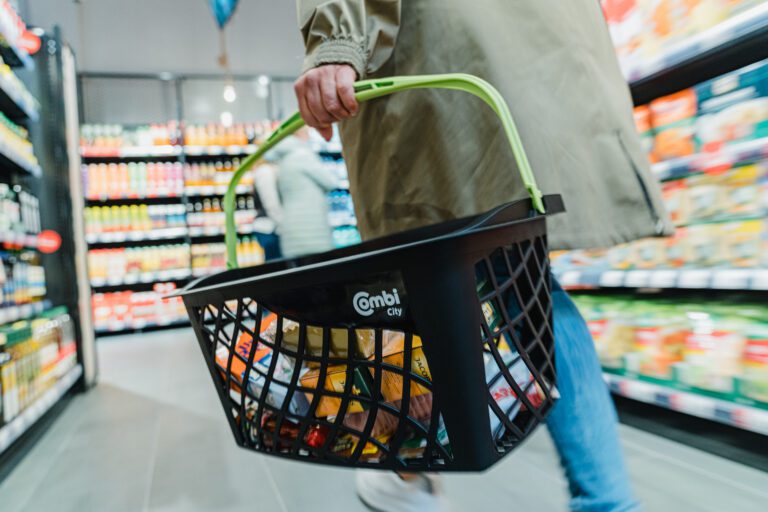
Digitalisation governs our lives; it will therefore also play a central role in the supermarkets of the future. Digital price tags will facilitate a prompt response to supply and demand, sensors will transmit alerts when there are gaps on the shelves. The staff learn where stocks have to be replenished via push messages. Customers can scan QR codes and can access important product information – such as matching recipes or additives that might be allergens – on their smartphone via an app.
It’s Markus Buntz’s job to address these questions and to monitor these developments. He has been a member of the executive board of the Bünting Group, based in Leer, Germany, since 2015, and its CEO since November 2016. With a workforce of over 12,700, it is one of the largest employers in the north-west of Germany – and therefore has to pay particular attention to its future viability.
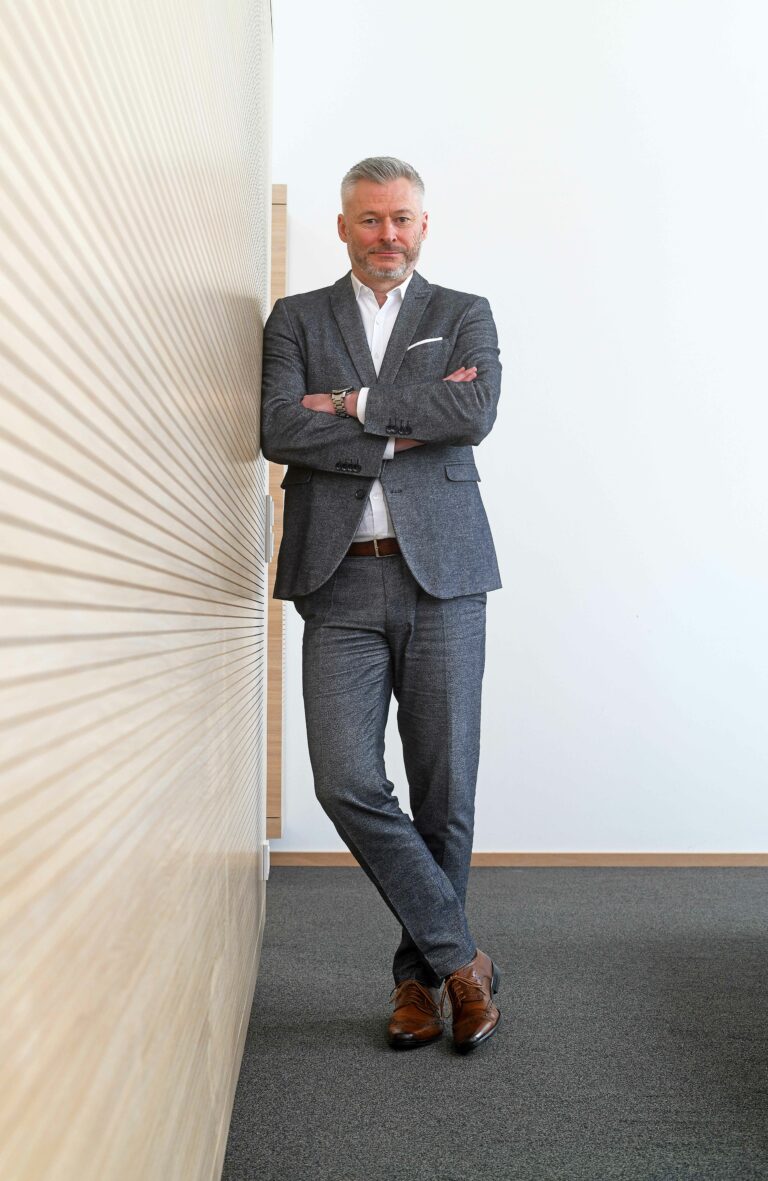
Cameras and sensors
Buntz knows: “Supermarkets are also becoming more digitalised. Increasingly, digital assistance systems help with the shopping and make it possible to show each customer offers that are tailor-made for them.”
Tomorrow’s shopping experience will, for example, no longer involve queuing at the till. Visionaries are dreaming of payment via finger- or handprint; in fact, such systems are already being trialled in the USA.
Another model takes the self-checkout concept one step further. It is already being realised in many stores: countless mini cameras, sensors and scales installed throughout the store register who puts which product in their shopping trolley or has already stowed it away in their backpack. When they leave the shop, the amount due is automatically debited to their account via their smartphone. The technical term for this artificial intelligence supported process is “grab & go”.
Futuristic fantasies? By no means. In other countries, many of these ideas have already been realised, according to Germany’s digital association Bitkom.
Digitalisation also makes it possible for retailers to analyse the behaviour of shoppers in more detail. Which routes do they typically follow? How long do the customers hesitate before deciding on a product? Do they tend to grab items from the top or the bottom shelves?
Ultimately, these “smart shopping” findings help retailers to optimise what’s on offer in the store.
Comeback after difficult times
Both of Marcus Buntz’s parents also worked in the retail business. “So I guess it kind of runs in the family,” he says today. That is why he realised very early on that “I also wanted a career in this field”. Gaining a degree in business management from Duale Hochschule Heidenheim as well as international experience equipped him well for his dream job. Born in Swabia in the southern part of the country, Marcus Buntz worked for major players such as the hypermarket chain Globus, for example, before relocating to the region of East Friesland in the north of Germany.
Buntz reckons one of his outstanding personality traits is the fact that he pursues goals, once set, with persistence and “with all my strength and stamina”. This quality was precisely what was needed when he joined Bünting. The company was in dire straits, operating at a loss year after year. It simply had to be turned around. Buntz decreed that the Group should focus on its core business, food retail, reorganised this area strategically and initiated the divestment of unprofitable divisions. He recalls: “At this stage, it was important that changes were implemented promptly – and with the cooperation of the workforce; we got everyone involved and engaged with them.”
The turnaround was successful. In early 2018, a headline in the trade journal Lebensmittelpraxis read: “Bünting is back!”, elaborating further: “With new CEO Markus Buntz at the helm, the Group swung back into profit in 2016, after several years in the red.” Bünting is now back on the right path. In the 2021 financial year, for example, the operating profit rose from 19.7 in the previous year to 46.8 million euros, and the net result increased from 11 to 26.1 million. “The company was successfully stabilised and consistently developed further”, the experienced manager says about this successful turnaround.
Back to the future. For Buntz, the retail business constantly harbours new challenges: “It is extremely dynamic, you have to continue to find answers to altered framework conditions,” he says, adding that this, however, is what makes his job so exciting. Standing still, resting on your laurels, sitting back and doing nothing – none of this is an option. On the contrary: the Bünting Group is well-known for constantly keeping a watchful eye on the latest developments. “We always localise innovative topics and trends at a very early stage,” its CEO confirms.
Always a first glance at the figures
A look at the Emden city centre, where Bünting opened a hybrid Combi store with around 550 square metres of sales floor in late 2021, proves that the Group is getting ready for the future. Between the hours of 6 a.m. and 9 a.m. in the morning and 8 p.m. and 11 p.m. at night, it offers its customers the option of shopping autonomously – i.e. without staff being present – beyond the usual opening times. This is made possible by state-of-the art technology with digital access, item scanning and payment solutions. Access to the store can be gained with a debit card, customer card or via the Bünting app. The payment process is cashless via self-checkout tills.
Markus Buntz reveals that the first thing he does when he arrives at work in the morning is to look at the previous day’s turnover. There’s nothing wrong with the figures from Emden.
“Sometimes, we generate 20 percent of the turnover during those times outside the usual opening hours,” he says to illustrate the popularity of the offer in figures. The model has proved to be successful. Model being the operative word here: the concept is scalable. Further hybrid stores are right at the top of the agenda.
Strategist Buntz clarifies that the general point is the utilisation of different sales channels in order to thereby also meet the varying customer needs. People tend to do their major shopping in the stores just outside the towns, whilst the store in the Emden city centre is primarily visited by customers who buy just a few items. Others order online or opt for home delivery. Markus Buntz himself is a fan of the so-called omnichannel approach: “I visit several of our stores and sites every week – above all also to talk to the staff and the customers. However, I also use our online offer, of course.”
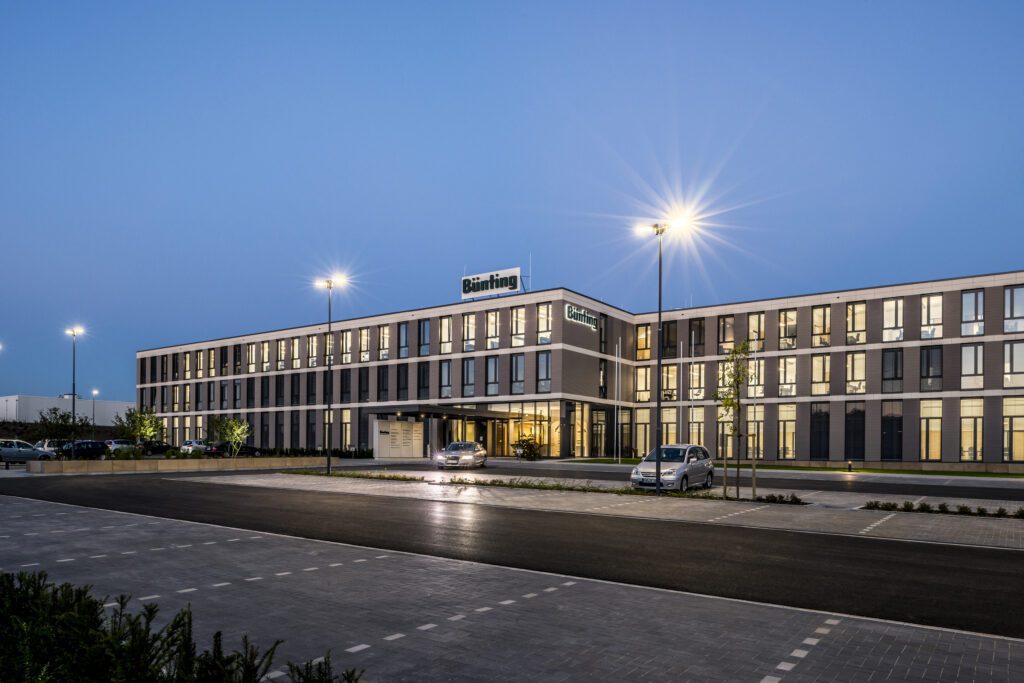
Cooperation with Vattenfall
Besides focusing on the company’s workforce and despite his belief in the power of innovations, another aspect is also very important to Buntz: that a viable future not only equals the right technology. A viable future also means sustainability and taking responsibility for the coming generations. “This is a fundamental topic for us,” says Buntz. “The sustainability principle is deeply embedded throughout the entire Group,” he continues, citing partnerships with the animal welfare organisation Initiative Tierwohl and the organic food brand Alnatura by way of example. Products sourced from producers who are based in the region are clearly labelled with the Gutes aus der Region label.
Furthermore, the Group also plans to install rapid charging points for electric cars in around 200 car parks of Combi supermarkets and famila hypermarkets, which also belong to the Bünting Group, by 2025. It is cooperating with the energy supplier Vattenfall, who will take over the planning, installation and operation of the charging points. A logical step for Markus Buntz, just like the gradual conversion of the company’s own fleet of vehicles: “Of course we use electric vehicles, for example to deliver orders placed via our eCommerce platform Combi.de.”
The CEO feels that working for Bünting, a traditional company deeply rooted in the region and still wholly owned by one family, is a great privilege. “This shareholder structure gives us the kind of stability that makes it possible for us to take a long-term approach,” he confirms. He himself will continue to play an active part in the company’s future: in early 2023, his contract with the retail group was extended by a further five years.
Bünting Unternehmensgruppe
Sie sehen gerade einen Platzhalterinhalt von Standard. Um auf den eigentlichen Inhalt zuzugreifen, klicken Sie auf den Button unten. Bitte beachten Sie, dass dabei Daten an Drittanbieter weitergegeben werden.
Mehr Informationen

